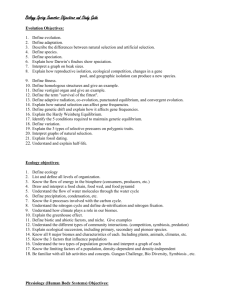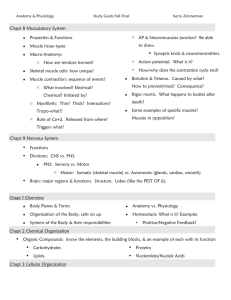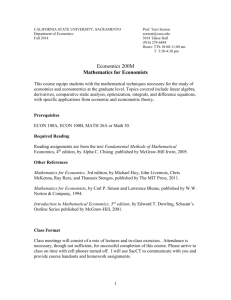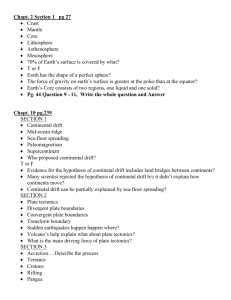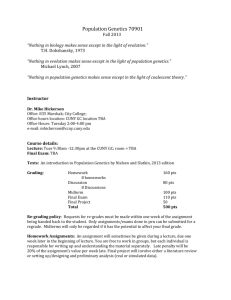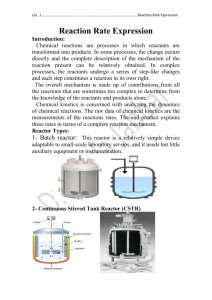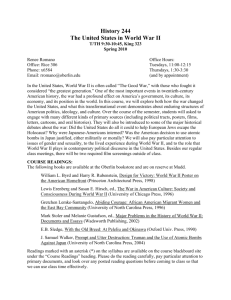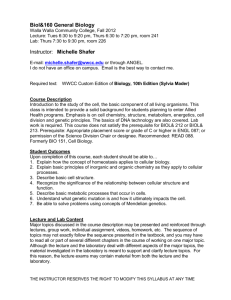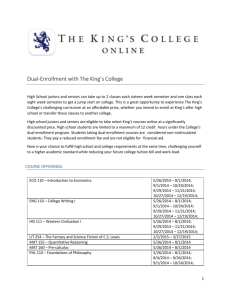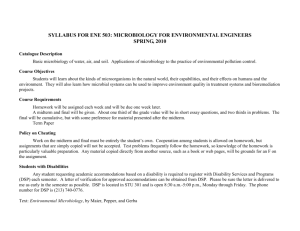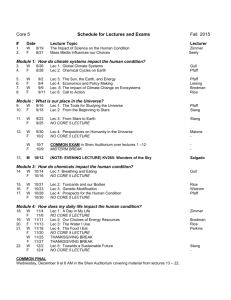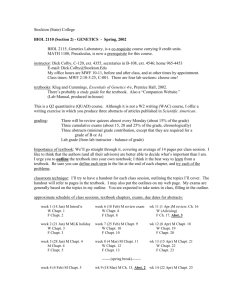BINF 633 Molecular Biotechnology
advertisement
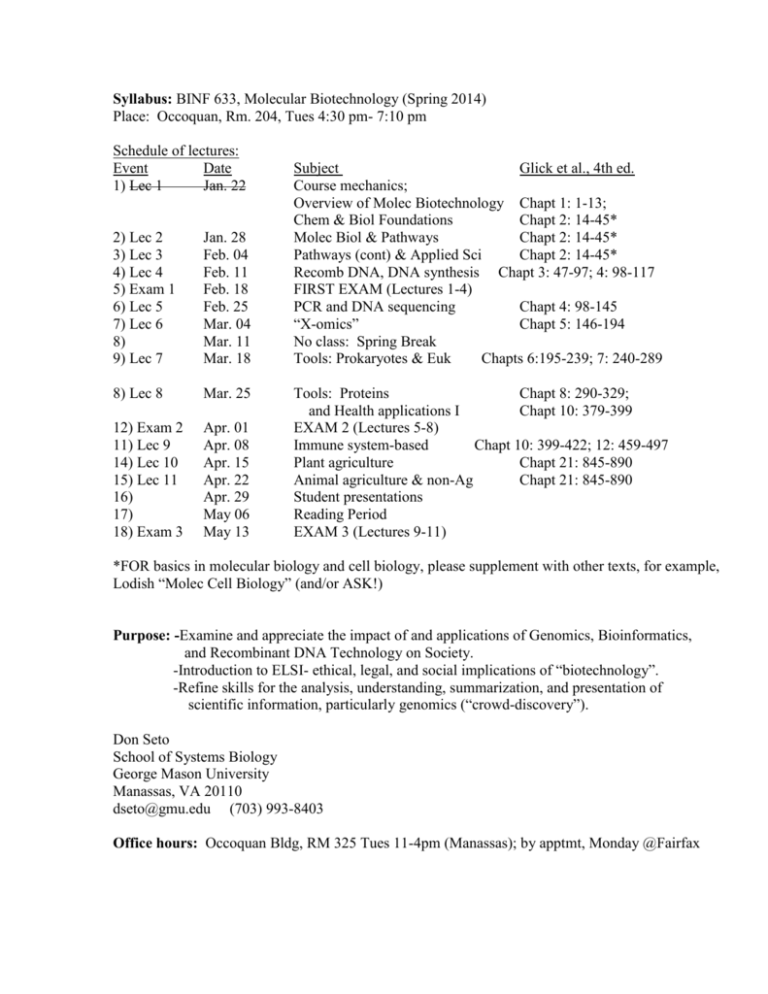
Syllabus: BINF 633, Molecular Biotechnology (Spring 2014) Place: Occoquan, Rm. 204, Tues 4:30 pm- 7:10 pm Schedule of lectures: Event Date 1) Lec 1 Jan. 22 2) Lec 2 3) Lec 3 4) Lec 4 5) Exam 1 6) Lec 5 7) Lec 6 8) 9) Lec 7 Jan. 28 Feb. 04 Feb. 11 Feb. 18 Feb. 25 Mar. 04 Mar. 11 Mar. 18 8) Lec 8 Mar. 25 12) Exam 2 11) Lec 9 14) Lec 10 15) Lec 11 16) 17) 18) Exam 3 Apr. 01 Apr. 08 Apr. 15 Apr. 22 Apr. 29 May 06 May 13 Subject Glick et al., 4th ed. Course mechanics; Overview of Molec Biotechnology Chapt 1: 1-13; Chem & Biol Foundations Chapt 2: 14-45* Molec Biol & Pathways Chapt 2: 14-45* Pathways (cont) & Applied Sci Chapt 2: 14-45* Recomb DNA, DNA synthesis Chapt 3: 47-97; 4: 98-117 FIRST EXAM (Lectures 1-4) PCR and DNA sequencing Chapt 4: 98-145 “X-omics” Chapt 5: 146-194 No class: Spring Break Tools: Prokaryotes & Euk Chapts 6:195-239; 7: 240-289 Tools: Proteins Chapt 8: 290-329; and Health applications I Chapt 10: 379-399 EXAM 2 (Lectures 5-8) Immune system-based Chapt 10: 399-422; 12: 459-497 Plant agriculture Chapt 21: 845-890 Animal agriculture & non-Ag Chapt 21: 845-890 Student presentations Reading Period EXAM 3 (Lectures 9-11) *FOR basics in molecular biology and cell biology, please supplement with other texts, for example, Lodish “Molec Cell Biology” (and/or ASK!) Purpose: -Examine and appreciate the impact of and applications of Genomics, Bioinformatics, and Recombinant DNA Technology on Society. -Introduction to ELSI- ethical, legal, and social implications of “biotechnology”. -Refine skills for the analysis, understanding, summarization, and presentation of scientific information, particularly genomics (“crowd-discovery”). Don Seto School of Systems Biology George Mason University Manassas, VA 20110 dseto@gmu.edu (703) 993-8403 Office hours: Occoquan Bldg, RM 325 Tues 11-4pm (Manassas); by apptmt, Monday @Fairfax Course Text: “Molecular Biotechnology: Principles and Applications of Recombinant DNA” by Glick, Pasternak and Patten. ASM Press, 4th edition (2010). Grading structure: -three exams @100pts ea -one oral presentation @50pts ea -three homework @25pts ea total = 375pts Grading structure: 85%A, 70%B, 55%C Presentation assignment: 10 min. with max 3-5 slides: Debate “FOR” or “AGAINST”, with citations and scientific as well as personal arguments. Topics include: GMO foods; Developing cheaper fuels through man-made organisms (Synthetic Life); Turning New Guinea and parts of Africa and South America into nature preserves (Society needs/individual rights); Harvesting genomes/genes from indigenous populations/bio-piracy(?) (Society needs/individual rights) **Adherence to academic integrity and the GMU Honor Code expected (http://honorcode.gmu.edu). ****Concerns regarding email address privacy should be addressed with instructor. Class communications: GMU Blackboard and by email via your GMU e-address, unless you tell me otherwise.
